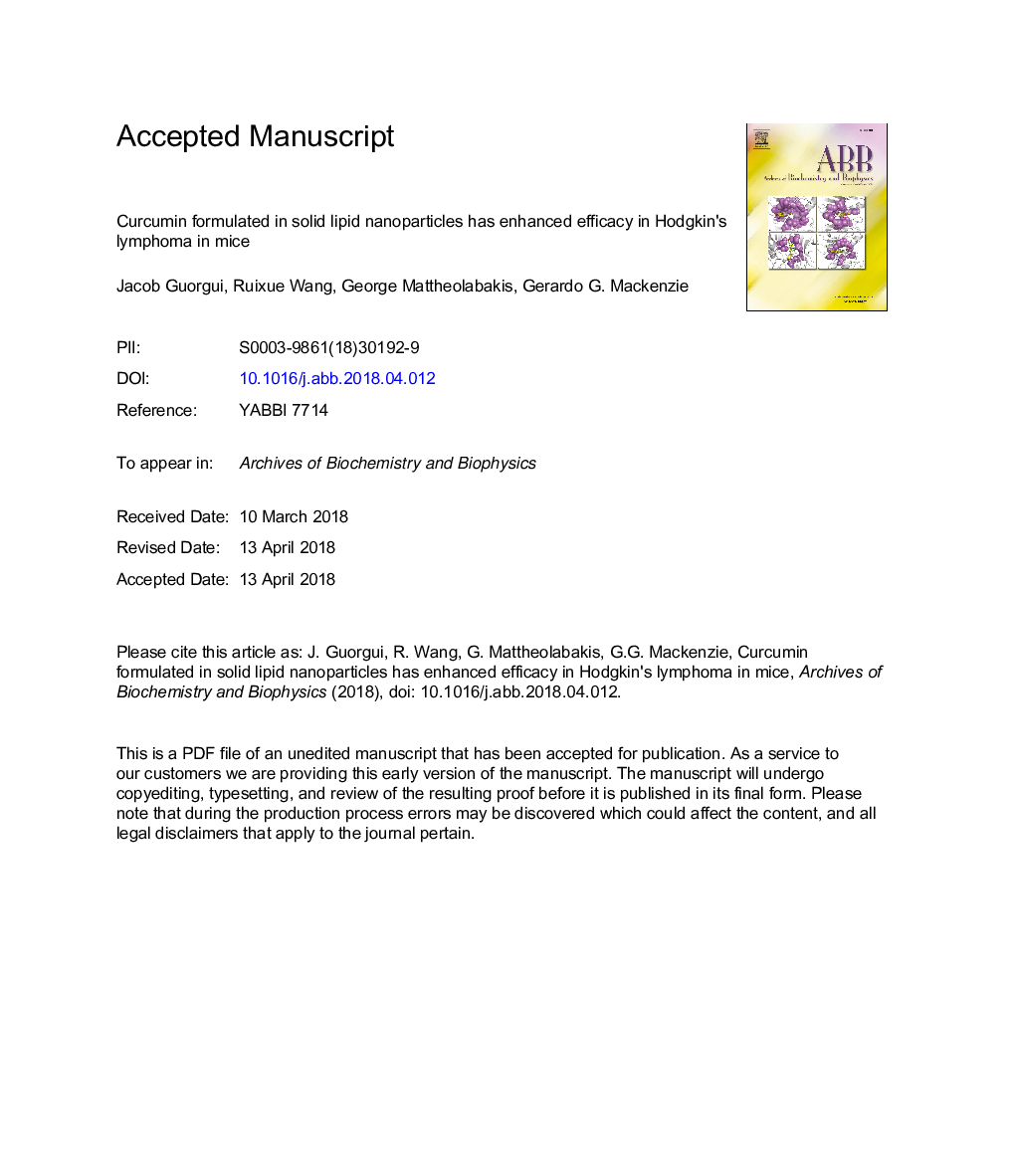| کد مقاله | کد نشریه | سال انتشار | مقاله انگلیسی | نسخه تمام متن |
|---|---|---|---|---|
| 8288561 | 1536257 | 2018 | 29 صفحه PDF | دانلود رایگان |
عنوان انگلیسی مقاله ISI
Curcumin formulated in solid lipid nanoparticles has enhanced efficacy in Hodgkin's lymphoma in mice
ترجمه فارسی عنوان
کورکومین در نانوذرات چربی جامد، اثربخشی در لنفوم هوچکین در موش ها افزایش می یابد
دانلود مقاله + سفارش ترجمه
دانلود مقاله ISI انگلیسی
رایگان برای ایرانیان
موضوعات مرتبط
علوم زیستی و بیوفناوری
بیوشیمی، ژنتیک و زیست شناسی مولکولی
زیست شیمی
چکیده انگلیسی
Curcumin reduces Hodgkin's lymphoma (HL) cell growth in vitro, but its unfavorable pharmacokinetics highlight the need for novel in vivo delivery systems. Thus, we explored whether formulation of curcumin in solid lipid nanoparticles (SLN-curc) or d-α-Tocopheryl polyethylene glycol 1000 succinate (TPGS) nanoparticles (TPGS-curc) could enhance its efficacy in mice. Curcumin formulated in SLN and in TPGS resulted in higher curcumin plasma levels in mice. Compared to vehicle-treated controls, SLN-curc and TPGS-curc reduced HL xenograft growth by 50.5% (pâ¯<â¯0.02) and 43.0% (pâ¯<â¯0.04), respectively, while curcumin reduced it by 35.8% (pâ¯<â¯0.05). In addition, SLN-curc reduced the expression of proteins involved in cell proliferation and apoptosis (XIAP and Mcl-1) in HL tumor extracts. In HL cells in culture, curcumin decreased the expression of relevant anti-inflammatory cytokines (IL-6 and TNF-α) in a concentration-dependent manner. Moreover, when given in combination with bleomycin, doxorubicin and vinblastine, curcumin showed an additive growth inhibitory effect. In conclusion, SLNs appear as an appropriate and effective drug delivery system for curcumin. Given the efficacy of SLN-curc and the enhanced growth inhibitory effect when combined with chemotherapeutic drugs, we speculate that curcumin, when appropriately formulated, is a promising adjuvant agent for the treatment of HL and merits further evaluation.
ناشر
Database: Elsevier - ScienceDirect (ساینس دایرکت)
Journal: Archives of Biochemistry and Biophysics - Volume 648, 15 June 2018, Pages 12-19
Journal: Archives of Biochemistry and Biophysics - Volume 648, 15 June 2018, Pages 12-19
نویسندگان
Jacob Guorgui, Ruixue Wang, George Mattheolabakis, Gerardo G. Mackenzie,
